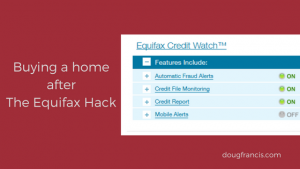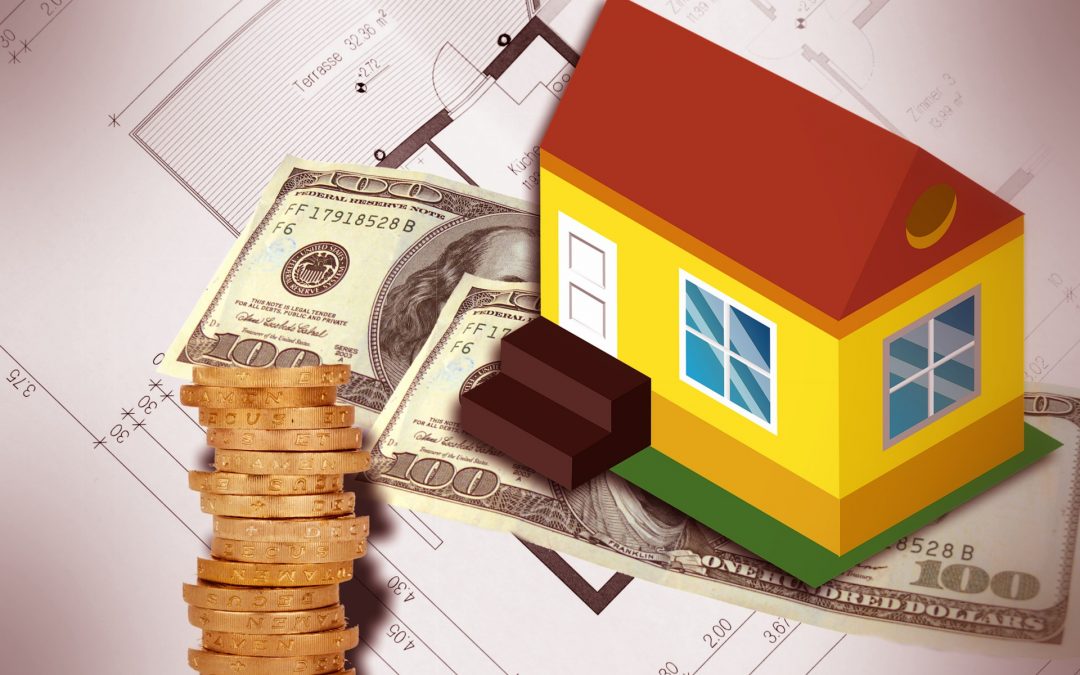by Jacque Veney | Dec 27, 2017 | Blog

Understanding a home’s true market value is about more than pictures, software assessments and price-per-square-foot. Whether you’re a current homeowner thinking of selling or are house-hunting, it’s crucial you understand what factors affect home valuation. Even in a seller’s market it’s important not to price your home out of the market. By partnering with a local market expert, sellers avoid pricing mistakes.
So, how do you accurately calculate a home’s value? After all, the value a home is assigned by its town or county and the one it’s given when it’s listed are often dramatically different from one another. Which one is accurate and what does it all mean?
When it comes to home value, you’ll often hear two terms, assessed value and market value.
A home’s assessed value is often the lower number of the two, and is the value given by your municipality or county. Investopedia defines assessed value as “the dollar value assigned to a property to measure applicable taxes.”1 Although property tax laws vary, assessors commonly arrive at this number by taking into account the following:
- What comparable/similar homes are selling for in your area.
- The value of recent improvements.
- Income from renting out a room or space on the property.
- How much it would cost to rebuild on the property.
A home’s market value, or Fair Market Value, is the price a buyer is willing to pay or a seller is willing to accept for a property. A skilled real estate professional will arrive at the value using a variety of metrics, including:
- External characteristics, such as lot size, home style, the condition of the home and curb appeal.
- Internal characteristics, such as the number of rooms and their size, the type and condition of the heating or HVAC system, the quality and condition of construction, the flow of the home, etc.
- The sales price of comparable homes that have sold in your area.
- Supply and demand; that is, how many buyers and sellers are in the area.
- Location; that is, the quality and desirability of your neighborhood and other community amenities.
Why are these values often so different? An assessor usually estimates your property’s market value during a reassessment or if you make a physical change or improvement to it.2 As a result, a property may not be reassessed for many years. While your home’s market value may fluctuate with the market, your home’s assessed value is more likely to remain steady.3
What Determines a Home’s Value?
You’ve likely heard the motto of real estate: “Location, location, location.” This means a home’s value relies on its location. While the home and structures on the property will likely depreciate over time, the land beneath it tends to appreciate. Why? Land is in limited supply and a growing population puts increased demand on the housing supply. As a result, values increase.4
Other factors that affect your home’s value include the function and appearance of the property, how well the home and other structures are maintained and whether the home is a lifestyle property, such as a home with a horse farm or a home on the water.
Ultimately, the best indication of a home’s value is the overall supply and demand of the market. This is why we recommend you partner with a real estate professional who takes all of these factors—the assessed value, local market conditions, home features and has physically walked through and experienced your home— into consideration to determine the most accurate market value.
If you want to accurately assess a home’s value, it’s crucial to know about the market activity of our local area. I can help! Give me a call to get the scoop on the local market.
Sources: 1. Investopedia http://www.investopedia.com/terms/a/assessedvalue.asp
- New York State Department of Taxation and Finance https://www.tax.ny.gov/pubs_and_bulls/orpts/mv_estimates.htm
- Realtor.com http://www.realtor.com/advice/sell/assessed-value-vs-market-value-difference/
- Investopedia, http://www.investopedia.com/articles/mortgages-real-estate/08/housing-appreciation.asp?lgl=myfinance-layout
by Jacque Veney | Nov 17, 2017 | Blog
 You might not think the holiday season is the ideal time to sell your house, but before you decide to hold off, consider the following reasons that might make it the perfect time to put your home on the market.
You might not think the holiday season is the ideal time to sell your house, but before you decide to hold off, consider the following reasons that might make it the perfect time to put your home on the market.
1. The holidays are busy for people so you can bet buyers who are active during this time are serious and ready to buy.
2. Buyers who missed out during the spring/summer rush and are still looking for their dream home. Yours could be the one.
3. Buyers being relocated need housing now. Companies hire during the holidays too and will probably want their new employees to start as soon as possible.
4. Sellers thinking the holidays aren’t a good time to sell puts you in a great position with buyers because there are fewer homes on the market. Listings increase after the first of the year so starting now gets you ahead of the competition.
5. Homes show better when decorated for the holidays. Make your house shine with holiday lights and decor. Just don’t go overboard. A little goes a long way.
6. If you travel for the holidays your home will be easier to show. You can’t dirty dishes if you aren’t home so you have less prep for showings.
When you choose to sell is a personal choice that has to work for you. But if you are only holding off because you think the holidays are too slow and there are no buyers then you could be missing out on a great time to sell your home.
by Jacque Veney | Oct 3, 2017 | Blog

Article by Doug Francis https://www.dougfrancis.com/equifax-hack-buying-home-real-estate/
My clients will remember when I said, “Don’t go out and buy his and her BMWs until after you are finished buying the house!” Those days were so simple. Innocent really, almost charming. All that has changed after the recent hack of Equifax essentially exposed everyone’s personal financial information to a remote outpost on the Dark Web… where some dude will make $20 flipping your good name to a cyber gangster. At least they don’t have your 23andMe lab results!
Know these numbers
If you plan to buy a home using a mortgage anytime soon, it’s a good idea to check out your credit report(s). Don’t assume your file is okay – take a look at Equifax, Experian, TransUnion or FreeCreditReport.com . When YOU review your credit report, it does not reduce your FICO Score. If there are old accounts or errors that need correcting, then know it may take a month or two to correct them. Starting today is a smart step that could save you thousands (explained below).
The ideal credit line is one that has aged well. Like a Capital One card that you got in 2003 with a $16,000 credit line and a balance below $5,000 and no late payments. It’s okay, really. The FICO algorithm factors in the ratio of the maximum and actual balance. It’s the ratios that are really important. Ratios are really important. Do NOT close accounts. When you review your credit file, take a look at your account balances because getting them down will improve your score.
Two-Step Authentication
A smart step is to set up a two-step authentication on your credit. Which means, when you apply for any new credit, mortgage, car, furniture, and possibly insurance, Equifax will need to contact you and confirm with you first in a manor you have instructed them to ahead of time. Yes, they will even call you. It’s like when Microsoft or Google texts a code to you when you log in from a new location.
I set this two-step process up on my Equifax account about ten years ago after reading an article in BusinessWeek. It seemed smart especially since I have published a ton of personal information on the Interwebs. It was also when I decided to get serious about managing any credit balances and hold myself accountable like I was preaching to my clients.
At that time, I added the Automatic Fraud Alert to my account. You should do this too. The Automatic Fraud Alert requires Equifax to contact me when I apply for new credit. For example, when I bought my VW TDI (that’s another dark story) I was contacted by Equifax and required to confirm my identity with a PIN. After VW bought back my super-polluter TDI, I bought another car triggering the same two-step authentication. Maybe it is a freeze on my account, but hopefully, it makes my credit a little harder to hack.
The FICO Score is baked into our lives.
The FICO Score is baked into the life algorithm of America. FICO Score what lenders use. Want to finance a car? Your rate depends on your FICO Score. Looking for a new job? They will look at your FICO Score. Hoping to get a mortgage? They will look at your FICO Score.
The role that Experian, TransUnion, and Equifax play is monitoring your open credit lines, payment history, and ratios. And they have information such as your previous addresses, current and past employer, and any criminal activity (including unpaid parking tickets or Court convictions). All that information gets plugged into the FICO Score algorithm generating a number ranging from 300 to 850. You want a high number. That FICO Score will 100% determine what happens to you and how much you pay for a wide variety of things. FICO is totally baked into the U.S. financial system.
Home Buyers… Start Here
When you are buying a home and are working to get a mortgage, you really have to control what you do. Such as not buying new BMWs, adding a new line of credit at Ethan Allan, or saving 20% at Target with a new Target Card. Any new credit line additions are really bad decisions, and break Doug’s Prime Directive for buyer clients. Mortgage lenders pull your file when you apply for your loan. But, it is critical to know that the lender will pull your credit one more time just before Settlement. If you have added any new credit or a fake account shows up… then they will see it. And, your FICO Score may be impacted.
Start right now:
look at http://www.equifax.com/
look at http://www.experian.com/news/data-breach-five-things-to-do-after-your-information-has-been-stolen.html
look at https://www.transunion.com/equifax-data-breach-faqs
When you apply for a loan, your mortgage lender will ask for permission to review your credit. They order a tri-merge credit report seeing all three reports, and see your FICO Score.A higher FICO Score will allow the mortgage people to offer you a better rate saving thousands of dollars every year. That is why I want you to spend time now taking the effort to improve your score.
Example:
$500,000 loan amount at 3.75% on a 30 year loan has a Principal and Interest payment of $2,315 vs.
$500,000 loan amount at 4.25% on a 30 year loan has a Principal and Interest payment of $2,460
After 30 years… that’s $52,200 more!
So, I hope you understand why it is really important that you check your credit file and your FICO Score especially if you are planning on buying a home. The myth that pulling your credit negatively impacts your score is wrong, totally wrong. When you review, check for errors, you will see easy opportunities where you can improve your debt ratios.
With a little work now, you will improve your ability to buy a home in 2018. –author Doug Francis https://www.dougfrancis.com/equifax-hack-buying-home-real-estate/
by Jacque Veney | Aug 6, 2017 | Blog
Take a tour of Indianapolis. Check out visitindy.com to see more about our vibrant, first-class city. It’s a great place to live!
by Jacque Veney | Apr 9, 2017 | Blog
 Spring is here. If your outdoor living area needs some sprucing up, enjoy a few ideas to make your back yard a cozy place to hang out.
Spring is here. If your outdoor living area needs some sprucing up, enjoy a few ideas to make your back yard a cozy place to hang out.
Start with adding something overhead. Try a patio umbrella or go larger with a pergola. Curtains makes the pergola feel like an outdoor room and provide additional privacy. They’re inexpensive if you make them from canvas drop cloth and use electrical conduit for the curtain rods.
Fences make great neighbors, but don’t always make a great view. Solid walls blocks sight lines and can feel isolating so instead consider landscaping, a trellis, privacy screen, or combination of all three to get the amount of concealment you desire.
It’s still a little chilly so extend the outdoor season with a fire pit. Wood burning fires are nice but with a gas fire pit you have no dangerous embers, no smelly smoke, and no wood to collect which can attract termites and carpenter ants that like to dine on your deck or house.
Lastly, don’t forget the patio furniture. You can buy brand new, but if you’re looking to stretch your budget check out local online sale sites or auctions. You might pick up a real bargain, or if you’re willing to use sweat equity, turn a tired yard-sale find into something fresh and new with paint and pillows.
Happy projecting and enjoy!

by Jacque Veney | Nov 17, 2016 | News
Hopefully the holidays are filled with all that makes your heart happy, but sometimes celebrating the season can put you at risk. Here are some tips to help keep you and your home safe and merry.
Fire Safety
Inspect and clean your chimney and furnace
Don’t overload outlets
Replace older holiday lights if frayed or cracking
If buying an artificial tree, look for a fire resistant label
If buying a live tree, look for fresh needles that don’t snap easily
Keep your tree watered and away from heat sources like fireplaces, candles, and portable heaters
Check that smoke alarms are working
Break-ins
Thieves target homes that look empty
Let a neighbor know if you will be traveling so they can keep an eye on your home
Stop your mail or have someone collect it along with unexpected packages, notices of delivery attempts, or free publications that get left on your door or tossed in your drive
Put lights and/or a radio on a timer
Have someone clear or make tracks in your driveway if it snows
Thieves often ring your doorbell to see if you are home before breaking in. Install a wireless video doorbell that
connects to your smartphone and allows you to see and talk to who rings your bell from anywhere
Holiday Shopping/Gift Giving
Your mail/packages are easy prey for thieves
Don’t place mail containing personal checks or gift cards in your mailbox
Have a neighbor pick up packages or request a signature so they aren’t dropped at your door
Check USPS, FedEx, UPS, and Amazon websites for safe drop locations and options
Beware of bogus shopping apps meant to steal your credit card info. Download apps from a trusted source like the
retailer’s site and don’t use the app if it doesn’t have reviews or only has a few reviews
Jacque Veney, Realtor


by Jacque Veney | Oct 12, 2016 | Blog
That’s not always an easy question. Housing values vary based on several factors – the economy, the general condition of your home, the desirability of your location, and housing supply vs. demand.
If you’re like most people in this Google age, you gather housing data on the Internet. There is a lot of great information available, but be cautious with automated online valuation tools such as Zillow’s Zestimate. They’re often inaccurate because they work on algorithms that can’t factor in the condition of your home or other market influences that can increase or lower your value. I’ve seen estimates off by tens of thousands of dollars in my own neighborhood. This is not only frustrating to the homeowner who has tried to do their research before listing their home, but to Realtors too. We don’t want to be the one to tell you your home (where you invested your money and made memories) isn’t worth what you saw online. We know that look on your face means you think we are trying to beat down your list price for a quick sale. But a good Realtor knows how important correctly pricing your home is to getting you the best offer. It’s actually the most important factor. Price too high and buyers often won’t even tour your home. It will sit on the market. The longer it sits on the market, the more buyers start to think there’s something wrong with it or that you’re desperate and will take a low-ball offer. Statistics show that houses listed in line with current market values end up selling faster and for more money than those that are listed too high. Of course if you list too low you leave money on the table and no homeowner wants that.
Avoid pricing mistakes by talking to a Realtor who is familiar with your market area. They should come to your home to evaluate its condition and features, explain current market trends, and discuss recent comparable sales and active listings. Recent sales are a stronger indicator of value than active listings because they represent real sale prices – not projected sale prices.
Remember, there are many factors that affect your local real estate market that can’t be added into an automated valuation tool so be cautious of what you see online. Many Realtors will do a free market analysis of your home so don’t be afraid to ask.
Jacque Veney, Realtor


by Jacque Veney | Sep 7, 2016 | Blog
A roof is a big investment and like other systems in your house it needs maintenance. Don’t and you could be making a costly mistake. Living around mature trees adds additional concerns as shade helps create shingle deteriorating moss and your roof and gutters are under constant attack from falling tree parts. You might have also dealt with area critters, who sometimes use a tree as access to your roof. These all can be sources of damage that cause water penetration. As I’ve mentioned before, water going where water isn’t supposed to go can cost a lot of money in repairs. I get reminded just how much an ounce of prevention is worth when I see inspections that reveal expensive damage caused by neglecting simple maintenance. So here are some tips to protect your roof and your pocketbook.
1. Keep gutters clean – Did you know water from overflowing gutters can also wick upward under roof shingles and damage the decking and rafters beneath? Even if you have gutter guards, leaves and small bits from trees will sometimes form a dirt blanket over a mesh type guard and cause water to overflow, and all types can let these small parts fall inside the gutter and sometimes cause a clog.
2. Remove leaves – We clean leaves from our yards, but don’t forget to look up. Leaves and tree parts left on your roof trap moisture as they decompose and can allow moisture to form in your roof and moss to grow. Both deteriorate shingles.
3. Trim overhanging branches – Falling limbs, or limbs that touch your roof/house or bang off of it in the wind can cause damage.
4. Inspect roof yearly – You can do this, or many roofing companies will do it for a small fee. They check for things like cracked caulk, rust spots on flashing, shingle damage, nail pops, cracked or worn rubber boots around vent pipes, missing or damaged chimney cap, moss accumulation, etc. Even a newer roof can have minor damage that might not always be noticeable from the ground but is allowing water to penetrate. By the time you see wetness on a ceiling or wall, water has possibly damaged the roof decking and who knows what else. Instead of a simply sealing the hole, or repairing a shingle, you might now be removing a section of your roof to repair damage. Catching small issues early helps extend the life of your roof and saves you money down the road.
Jacque Veney, Realtor

by Jacque Veney | Aug 9, 2016 | Blog
Most buyers want an updated, move-in-ready home and will pay top dollar for it. In return, they will often pass over one that’s dated or poorly maintained – or want a deep discount. I’ve seen it happen in my own neighborhood. Homes in poor condition or with less market appeal take longer to sell, have multiple price reductions, and often sell for less than anticipated by their owner – if they sell at all. But those in good condition have sold in days and close to list price. Unless you are ok with dropping your price until you find a buyer, it’s almost always better to be in good condition when you are ready to sell.
Getting your home into showing condition doesn’t have to be expensive. Amazing results can often be obtained from a deep cleaning, new fixtures, fresh paint, and proper staging. See for yourself in these before and after photos where I helped my seller with a neutral paint selection and brought in a few of my staging pieces. This home sold in 3 days for 97.6% of list price.


But before you update, it’s good to know both market expectations and property values in your neighborhood so you choose improvements that bring the best bang for your updating buck. Don’t do your research or don’t choose a Realtor who can effectively guide you, and you risk losing money by over improving or picking updates that don’t appeal to the average buyer. You can bet most buyers will love your major bathroom overhaul with free-standing tub, heated floors, walk-in shower, stone counter tops, custom vanity, and imported tile, but depending on the price range of your home and your market area, you probably won’t be able to add the full cost of your remodel to the price of your home. You very rarely get a dollar for dollar return, and typically the higher the cost the lower the return. If you plan to live in your house for a long time, go ahead and splurge. There is value in enjoying something every day. But, if you are looking to sell soon, keep your investment on the lower side.
You can save money with sweat equity which works great for things like painting, or swapping fixtures, but unless you have the skills to do good work, hire a professional for your projects. When buyers see work that looks DIY, they start tallying the expense to fix what you’ve done and will often walk away or bring you a low offer. Either way, bad craftsmanship wastes your time and money.
So what does the typical buyer like in a home today? It depends on who the typical buyer is for your area, but kitchens and bathrooms are always a good place to put your money. There are many resources on the internet that will give you advice, but beware of those that state a certain return for certain updates. A $20,000 bathroom remodel might bring you a 75% return on investment in a higher priced home, but only a 20% return in a lower priced home. There is never a standard return across the board for all houses.
So what’s the bottom line? If you want maximum value from your home, it’s important to make the right updates, so talk to a real estate professional that knows your market area before you start.
 Jacque Veney, Broker
Jacque Veney, Broker


 You might not think the holiday season is the ideal time to sell your house, but before you decide to hold off, consider the following reasons that might make it the perfect time to put your home on the market.
You might not think the holiday season is the ideal time to sell your house, but before you decide to hold off, consider the following reasons that might make it the perfect time to put your home on the market.
 Spring is here. If your outdoor living area needs some sprucing up, enjoy a few ideas to make your back yard a cozy place to hang out.
Spring is here. If your outdoor living area needs some sprucing up, enjoy a few ideas to make your back yard a cozy place to hang out.





Recent Comments